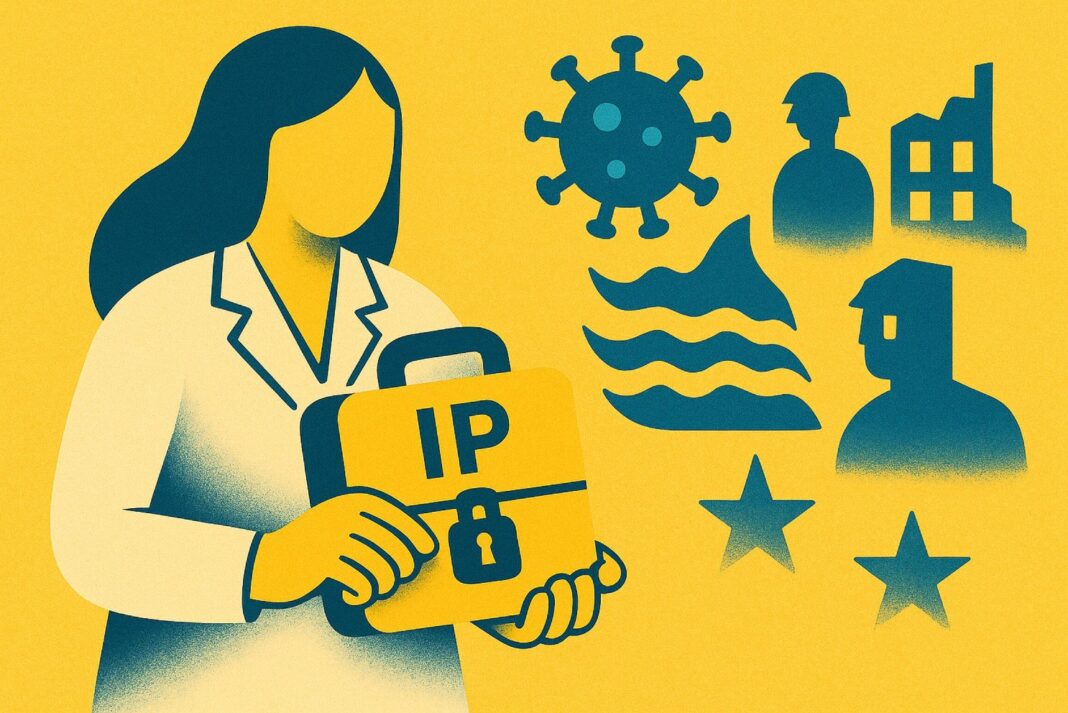An initiative to bring immersive technology into medical practice
One of the sectors where XR – Extended Reality – can have a profound impact on human life is healthcare, even though its widespread adoption still faces significant hurdles: regulatory, technological, and cultural. It is precisely to address and overcome these challenges that VR Health Champions was launched: a three-year European project worth €7.8 million, co-funded for €5.82 million by the European Union through the Interregional Innovation Investments (I3) instrument of the European Regional Development Fund (ERDF).
The VR Health Champions initiative aims to disseminate and transfer knowledge to support businesses working in VR/AR technologies (Virtual Reality and Augmented Reality) in the healthcare sector. It aims particularly at supporting the less developed regions of Central-Eastern, and Southern Europe and is coordinated by Instituto Pedro Nunes (Portugal) with co-coordination from EIT Health Innostars. The project involves 18 partners across eight EU member states, including research centers, universities, hospitals, multinational companies, and start-ups, distributed across nine regional ecosystems. Key stakeholders include Fondazione Bruno Kessler (Italy), the Medical University and the University of Technology of Łódź, the University of Latvia, Centro Hospitalar e Universitário de Coimbra, Medtronic Portugal and Medtronic Ibérica SA, Syreon Research Institute, RTE Lab, XR4Europe, and Klaster Life Science Krakow.
Proposed solutions range
The project has selected five “flagship SMEs leading the way”: Lightspace (Latvia), MEEVA (Italy), MedApp (Poland), Metaskills (Poland), and Virtuleap (Portugal), with the goal of supporting their technological growth from Technology Readiness Level (TRL) 6 to TRL 9, up to full market entry. In addition, through an open call (launched on April 14, 2025, and closed on June 23, 2025 VR Health Champions Open Call 2025) the project offered other SMEs the opportunity to get involved by providing cascade funding of up to €40,000 per company to support the development of XR solutions in healthcare.
The applicants will be notified following an evaluation based on criteria of relevance, methodology, feasibility, and impact, scheduled for August 18, 2025. Project durations range from 4 to 6 months, with strategic goals such as market readiness, clinical validation, integration with advanced technologies, and reinforcement of the interregional value chain in close cooperation with the main SMEs already engaged in the project. Proposed solutions range from augmented surgical navigation to immersive training, from neurocognitive assessment in VR to therapeutic support for adolescents with developmental disorders. Each technology will be tested in real clinical settings and validated from a regulatory standpoint, thanks to collaboration between companies and healthcare institutions.
A market under construction
As mentioned, the project aims to remove the barriers that still hinder XR adoption in healthcare, such as the lack of regulatory guidelines, limited shared clinical evidence, high technology costs, and widespread uncertainty among both professionals and patients. Major challenges include integrating XR with certified medical devices, hardware limitations, and the need to reconcile human – both professional and personal – needs with the potential of XR. Moreover, the market itself is not yet mature: a lack of hardware providers, high GPU costs, and limited access to scalable platforms remain significant barriers for innovative SMEs.
To this, we must add regulatory and cultural obstacles. Certification rules for XR technologies are still not well established, and institutional recognition is proceeding slowly. Many healthcare professionals remain skeptical, partly due to lack of training and partly due to the absence of solid evidence on the effectiveness of these solutions. A systemic change is needed, involving hospitals, companies, and policymakers in a shared process – and this is exactly what VR Health Champions aims to support.
According to estimates, the European XR market could reach €65 billion by 2025, with a gross value added of €40 billion. Healthcare already accounts for 11% of this market, and demand is expected to grow. The project also invests in the human dimension: expected benefits include improved spatial awareness for surgeons, better psychological well-being for patients, and enhanced trust between citizens and healthcare systems.
With three years of work, a pan-European consortium, and an approach that combines innovation, regulation, and co-creation, VRHC seeks to demonstrate that extended reality can become a practical tool to improve the quality of healthcare.

Focus: the five flagship SMEs
The VR Health Champions project revolves around five European SMEs selected as examples of excellence in XR-based healthcare innovation. Here’s who they are and why they were chosen.
Lightspace (Latvia)
Is a pioneer in 3D visualization technologies, focusing on high-performance XR multifocal displays. Its technology enables 3D visualization that replicates human visual perception. Within VR Health Champions, Lightspace collaborates with MedApp (the former providing hardware, the latter software) and contributes to the development of immersive interfaces to enhance preoperative planning and surgical navigation. The goal is to combine medical-grade software with advanced displays to facilitate diagnostics, surgical accuracy, and increasingly realistic human-machine interactions, particularly optimized for short-range visualizations (around 1.5 meters), using the MEP interface.
MedApp (Poland)
Is a scale-up specialized in XR technologies for healthcare. It developed CarnaLife Holo, a CE-certified and FDA-approved medical application that enables holographic visualization of medical data, improving surgical planning accuracy. As part of VR Health Champions, MedApp is working on CarnaLife Holo MedNav, a solution that integrates 3D analysis with real-time tracking of surgical instruments.
MEEVA (Italy)
Founded in 2022, develops XR solutions for mental health and neurodevelopment. It created Zentastic VR, a virtual reality platform designed for adolescents with neurodevelopmental disorders such as autism and ADHD. The system offers interactive experiences in multiplayer immersive environments and incorporates biometric data analysis (like heart rate and stress) via sensors. The platform integrates artificial intelligence technologies – including, for example, a non-playable AI-based character NPC – and machine learning to personalize the therapeutic experience. Its aim is to implement a framework that incorporates clinical aspects and AI potential for XR mental health applications, giving specialists an effective clinical tool to assess patients’ social, cognitive, and relational skills.
Metaskills (Poland)
Is a young enterprise designing XR-based training paths using artificial intelligence for the healthcare sector. It aims to improve healthcare professionals’ relational and managerial skills through immersive experiences that include interaction with 3D avatars endowed with personality, emotions, and needs, in a VR environment that is judgment-free, repeatable, and safe. The system provides immediate feedback on communication, stress management, and leadership, and is also useful for training new healthcare professionals.
Virtuleap (Portugal)
Operates at the intersection of neuroscience and technology, developing VR solutions for cognitive assessment, training, and monitoring. Its flagship product, Cogniclear VR, is a platform composed of scientifically validated neuropsychological tests designed to identify early cognitive decline and track neurological deterioration. The tests are customizable to each patient profile. Through VR Health Champions, Virtuleap aims to expand clinical use of the system in collaboration with hospitals and research institutes, contributing to the development of digital diagnostic tools easily integrated into existing healthcare workflows.
References
- VR Health Champions website: https://vrhealthchampions.eu
- Bell, I.H., Pot-Kolder, R., Rizzo, A. et al. Advances in the use of virtual reality to treat mental health conditions. Nat Rev Psychol 3, 552–567 (2024)
- Adeghe, E. P., Okolo, C. A., & Ojeyinka, O. T. (2024). A review of the integration of virtual reality in healthcare: Implications for patient education and treatment outcomes. International Journal of Science and Technology Research Archive, 6(1), 79–88.








